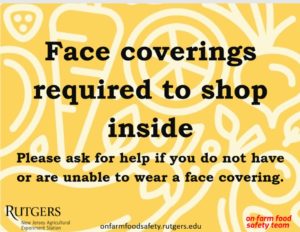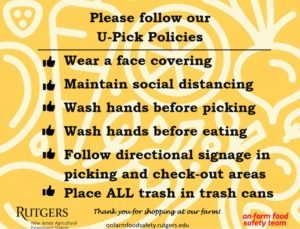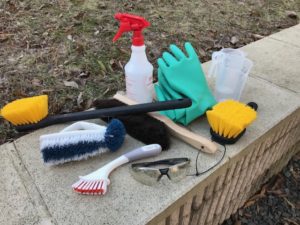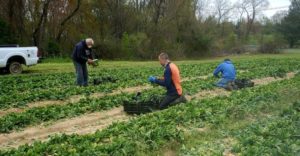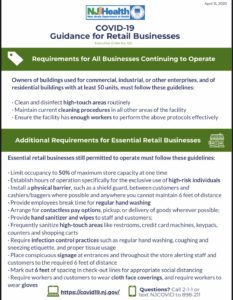 As farms start-up their pick-your-own seasons we are becoming more aware of negative customer feedback on social media sites. Comments have mostly been specific to the requirement of customers wearing face coverings while outside at a farm retail business. Your farm is deemed an “essential retail business” allowing you to be open, but requiring you to follow state guidelines. Customers are required to wear cloth face coverings at all times while at any essential retail business, including farm markets, farm stands, and pick-your-own locations. Those with health conditions where a face covering would cause a negative impact on their health and children under the age of two are exempted from this requirement. This season will be unlike any other you have had at the farm, and your customers experience will be different than what they are used to. This season your farm has the opportunity to provide a safe place to obtain local, healthy food, and hopefully they will make a few good memories while practicing social distancing and using face coverings appropriately.
As farms start-up their pick-your-own seasons we are becoming more aware of negative customer feedback on social media sites. Comments have mostly been specific to the requirement of customers wearing face coverings while outside at a farm retail business. Your farm is deemed an “essential retail business” allowing you to be open, but requiring you to follow state guidelines. Customers are required to wear cloth face coverings at all times while at any essential retail business, including farm markets, farm stands, and pick-your-own locations. Those with health conditions where a face covering would cause a negative impact on their health and children under the age of two are exempted from this requirement. This season will be unlike any other you have had at the farm, and your customers experience will be different than what they are used to. This season your farm has the opportunity to provide a safe place to obtain local, healthy food, and hopefully they will make a few good memories while practicing social distancing and using face coverings appropriately.
We have gathered resources to help convey the Governors Executive Orders, and their impacts to your farm operation, below. The second link is the newly released NJDH printable poster outlining the requirements of all businesses allowed to operate during this time, including the mandate all operating businesses require customers and employees to wear face coverings.
NJ Executive Order 122 – Full length (see page 6, letter K for specifics)
“Require workers and customers to wear cloth face coverings while on the premises, except where doing so would inhibit that individuals health or where the individual is under two years of age.”
NJDH Guidance for Retail Businesses – Requirements for all Businesses Continuing to Operate (printable poster)
“Require workers and customers to wear cloth face coverings, and require workers to wear gloves.”
NJDH/NJDA/DOL Guidance for Migrant and Seasonal Farmworkers, Their Employers, and Housing Providers
“Workers must wear face coverings at all times, including during transportation, while working, and while in the presence of others.”

